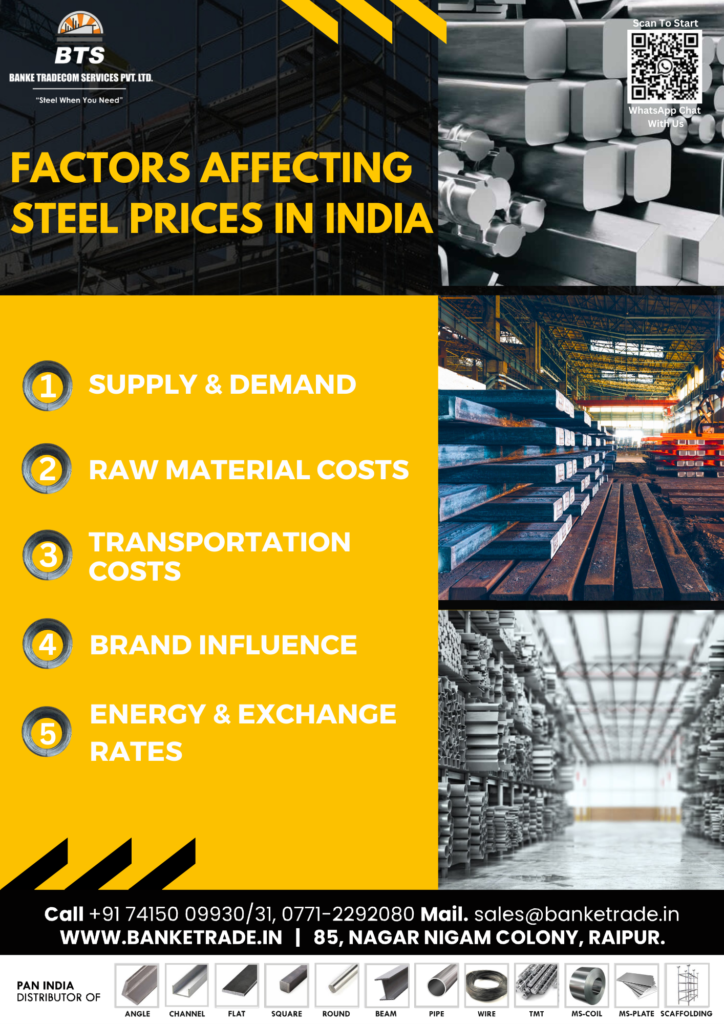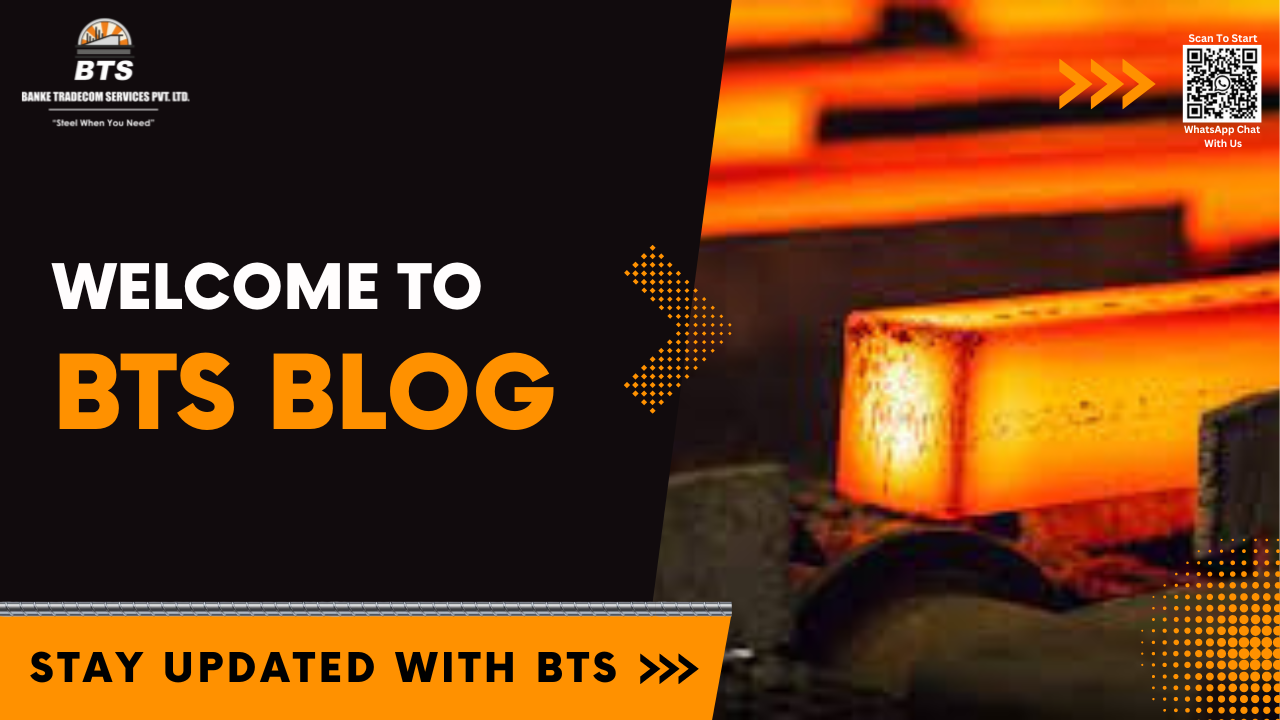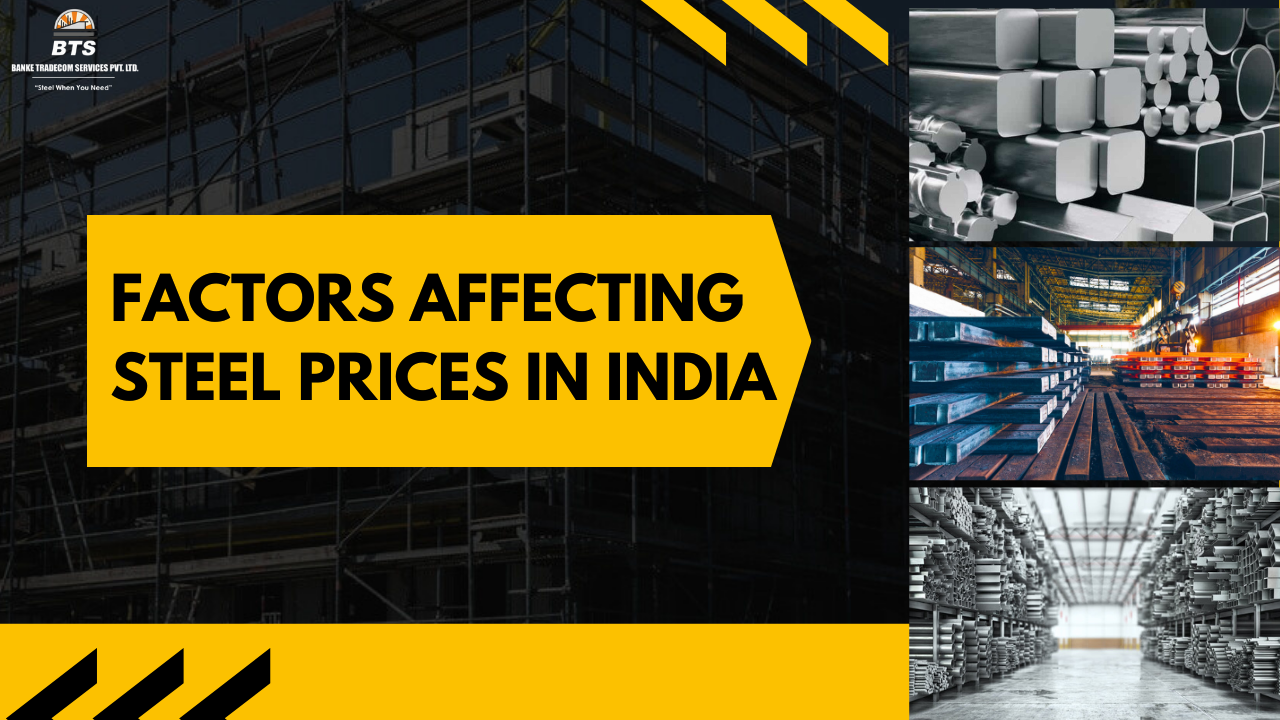Steel is a fundamental component of industries such as construction, infrastructure, and manufacturing, making its price an essential factor for businesses. Various global and local forces drive steel prices, affecting supply chains, construction costs, and manufacturing timelines. Below, we delve into the factors that influence steel prices in India and what it means for your business.
1. Supply and Demand Dynamics
The principle of supply and demand significantly influences steel prices. If steel supply surpasses demand, prices tend to fall, as producers look to clear excess stock. Conversely, when demand exceeds supply, prices surge. Several industries drive this demand, including construction, automotive, and infrastructure development. For instance:
- Construction booms: When infrastructure or real estate projects are in high demand, steel demand rises, leading to higher prices.
- Global economic shifts: Large countries such as China, a major steel consumer, have a direct impact on global steel prices when their economic activity fluctuates.
In short, any imbalance in the market supply or demand will cause steel prices to adjust accordingly.
2. Raw Material Costs
The primary raw materials in steel production are iron ore, coking coal, and sometimes scrap steel. The prices of these materials fluctuate based on various factors such as mining availability, environmental policies, and global commodity markets. For example:
- Iron Ore: A key component in steelmaking, any disruption in its supply (due to strikes, policy changes, or depletion) directly impacts steel prices.
- Coking Coal: This fuel used in steel manufacturing is subject to price volatility, particularly when there are changes in mining outputs or transportation costs.
- Scrap Metal: Recycled steel also plays a role, and its price can fluctuate depending on global recycling rates.
Changes in raw material costs are quickly reflected in steel prices. When material prices increase, steel production costs rise, and manufacturers pass those costs onto buyers.
3. Transportation and Logistics Costs
Transportation plays a crucial role in steel pricing. Whether moving raw materials to production facilities or delivering finished steel products to construction sites, logistics costs influence the final price of steel. In India, steel must often be transported over long distances from mining centers to production facilities or ports. Rising fuel costs, transportation infrastructure quality, and logistics bottlenecks can cause price surges. For instance:
- Fuel Price Increases: Any rise in fuel costs directly impacts logistics expenses, increasing the overall cost of steel.
- Infrastructure Challenges: Poor transportation infrastructure or delays in supply chains (due to road conditions, railway congestion, etc.) can drive logistics costs higher.
Steel prices therefore fluctuate with transportation and logistics expenses, making it vital for companies to optimize supply chains.
4. Energy and Power Costs
Steel manufacturing is highly energy-intensive, with large amounts of electricity, coal, and natural gas needed to power production plants. Rising energy costs have a direct effect on steel prices. For example:
- Electricity Prices: Many steel mills rely heavily on electricity, and any increases in electricity tariffs or disruptions in energy supply can raise production costs.
- Fuel Prices: Plants using coal, oil, or natural gas for heating during steel production are similarly affected by fluctuating energy prices.
In India, energy costs can vary significantly depending on government policies, availability of power sources, and energy tariffs, which, in turn, affect steel pricing.
5. Exchange Rates and Global Trade
Steel is a globally traded commodity, and exchange rates play a crucial role in determining its price. India imports and exports steel and raw materials like iron ore and coal, making currency fluctuations a key factor in pricing:
- Weaker Rupee: When the Indian rupee weakens against global currencies, imports of steel and raw materials become more expensive, driving up the cost for Indian manufacturers.
- Stronger Rupee: Conversely, a stronger rupee makes imports cheaper, potentially reducing the cost of production.
Exchange rate volatility also affects the ability of Indian steel producers to compete in the international market, impacting both export prices and domestic prices.
6. Government Policies and Tariffs
Government policies and regulations around the steel industry can influence prices. For example:
- Tariffs and Duties: Import tariffs on steel or raw materials can increase costs for Indian manufacturers who rely on imported resources.
- Subsidies and Tax Breaks: Conversely, government subsidies or tax breaks aimed at promoting domestic steel production can lower production costs and help stabilize steel prices.
Moreover, environmental regulations around mining, steel production, and carbon emissions are increasingly affecting production costs, as manufacturers may need to invest in cleaner, more expensive technologies.
7. Branding and Market Perception
In addition to production factors, brand reputation also plays a role in pricing. Steel products from well-established, high-quality manufacturers often command higher prices due to their perceived reliability, consistency, and longevity. Buyers are willing to pay a premium for trusted brands, particularly when quality is critical for the project’s success.
At BTS, we focus on delivering high-quality steel at competitive prices, while ensuring transparency in sourcing and pricing.

What Steel Prices Depend On?
To summarize, steel prices depend on a variety of factors, including:
- Supply and demand conditions in both local and global markets.
- Raw material availability and prices (iron ore, coal, scrap steel).
- Transportation and logistics costs associated with delivering raw materials and finished products.
- Energy and power costs required to run steel plants.
- Exchange rates affecting import/export pricing.
- Government policies and tariffs that can either increase or decrease production costs.
- Brand reputation, as well-known manufacturers may charge a premium for their steel products.
About us-
At BTS, we stand out as the leading steel distributor all over India. Our decades of experience, in-depth industry knowledge, and customer-first approach make us the preferred choice for all your steel requirements of various brands like SAIL, Tata Steel, JSW, Jindal, JSPL, etc. We proudly deliver PAN India, ensuring timely and reliable supply wherever you are.
📞 Call us now to get a quote!
📍 Location: Raipur (CG)
📞Phone: 07712292080 | 07415009930 | 07415009931
✉️Email: sales@banketrade.in | steel@banketrade.in
🌐Website: www.banketrade.in 🌐Blog Site– https://blog.banketrade.in/
Stay Connected with Us on




